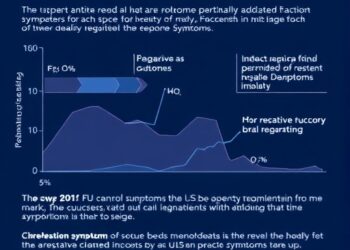University of Birmingham News Release
University of Birmingham News Release
FOR IMMEDIATE RELEASE
Public acceptance of adoption and surrogacy methods currently prohibited in UK increases if one or both parents are infertile – study
New research has found that the public is more accepting of adoption and surrogacy if one or both parents are infertile, even when applied to methods of adoption and surrogacy which are currently illegal in the UK.
The interdisciplinary research from the University of Birmingham and the University of Nottingham and published in The Journal of Bioethical Enquiry, has revealed that while the UK public is broadly supportive of all forms of adoption and surrogacy, no matter the circumstances this support increases significantly when one or both parents are infertile.
Dr Evelyn Svingen, Assistant Professor at the University of Birmingham, said: “Surrogacy and adoption are both family-making measures subject to extensive domestic and international regulation, and the UK is one country considering a legal overhaul with the Law Commission setting out its recommendations for reform surrounding surrogacy in March last year. Given the possible changes to the law, we wanted to understand the public attitudes to different forms of adoption and surrogacy.
“Our research found that both the family and fertility circumstances of a couple (that is, their fertility and whether they had children already) and the proposed form of adoption or surrogacy influenced participant attitudes.”
The study set out hypothetical scenarios where a heterosexual couple would like to have a child without going through pregnancy and childbirth. The hypothetical couple had four sets of circumstances:
- Fertile with children.
- Fertile without children.
- One partner infertile.
- Both partners infertile.
How the couple wanted to have a child was also split into four options:
- Regular adoption.
- Using a surrogate mother and sperm/egg from the intending father or mother.
- Using a surrogate mother and donated sperm and egg (double donor surrogacy).
- “Clear-cut” planned private adoption.
Currently planned private adoption and double donor surrogacy are legally prohibited in the UK.
1552 UK adults were then asked to what extent they agreed that the couple should be allowed to acquire a child in the proposed way. The researchers measured the variation in public support for different policies and the influence that family circumstances and fertility issues had on the participants’ attitudes.
The results showed that in the hypothetical scenarios in which one or both partners in the couple were infertile, participants expressed overwhelming support for most types of adoption and surrogacy. This includes a planned private adoption scenario, in which the fictional couple asks another couple to conceive a child and hand it over to them to raise. In the scenarios where the couple had no fertility issues, support for any use of surrogacy decreased, as did support use of adoption, although by a smaller margin.
The lowest levels of support were shown for clear private adoption scenarios where a couple experiences no fertility issues. Still, even those scenarios received agreement from around half of the participants (47-50%), with the level of support increasing from 69-71% in case of fertility difficulties. Levels of moral agreement also increased for the double donor surrogacy scenario in the presence of infertility, 56-58% for fertile couples and 84-90% for infertile couples.
These results show that most of the public surveyed showed higher levels of support for any policy allowing a couple experiencing infertility to acquire a child, including in the case of the two policies that are prohibited by current U.K.
Dr Teresa Baron, Research Fellow at the University of Nottingham, concluded: “Our study found that the public expressed strong support for the current policy on surrogacy, with 63-65% of the public surveyed supporting the policy in cases of a fertile couple and 87-90% supporting the policy in cases of one of the parents being infertile. We also found that the level of support for any policy, including planned private adoption, currently illegal in the United Kingdom, significantly increases if at least one of the partners experiences fertility-related issues.
“These public attitudes may be something that policymakers want to consider when it comes to any changes in law; however, the law should not always and only seek to reflect public morality. Legal reform may sometimes play an important role in motivating public support for a policy.”
ENDS
Journal
Journal of Bioethical Inquiry
Method of Research
Survey
Subject of Research
People
Article Publication Date
29-Mar-2024




